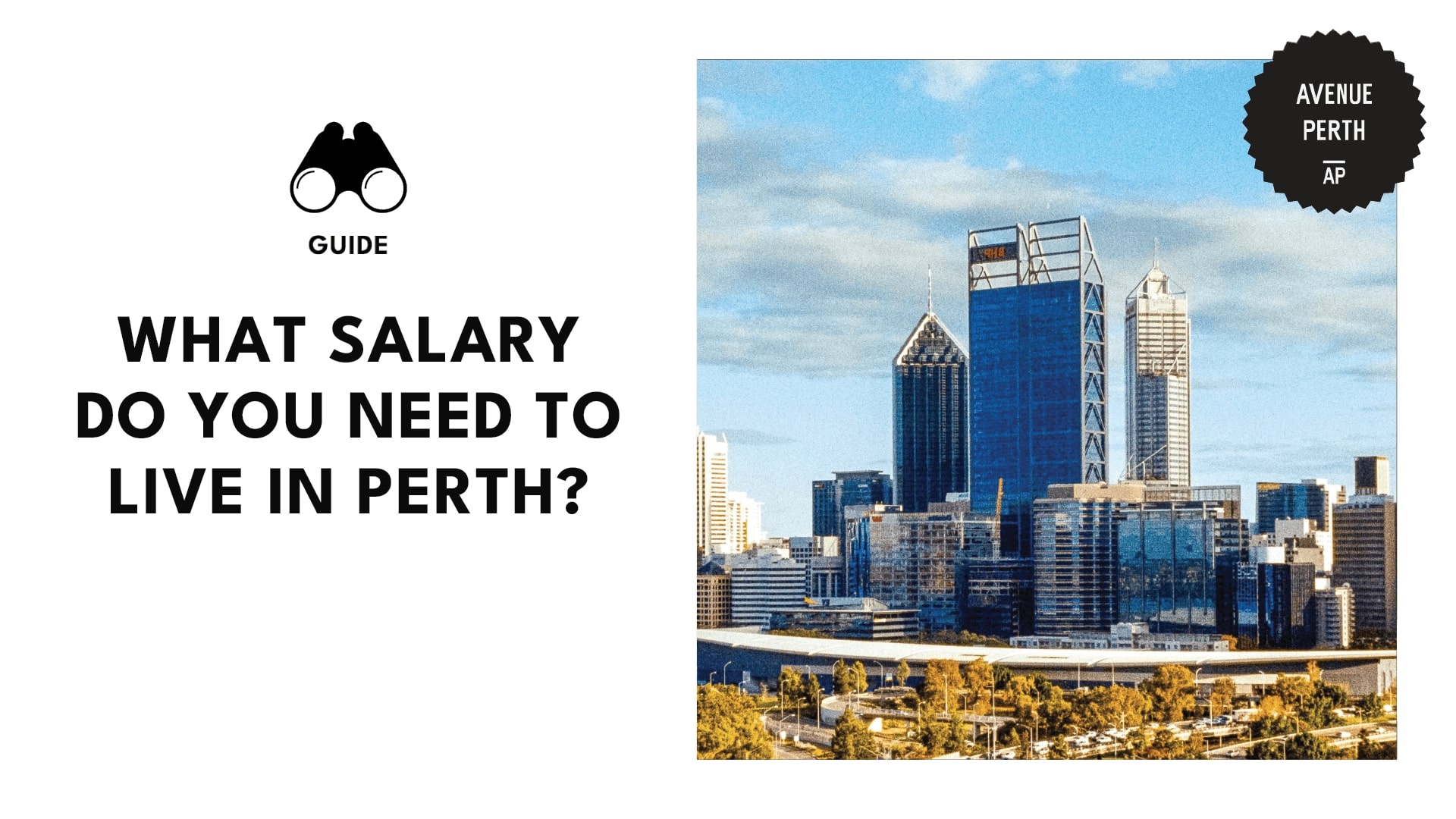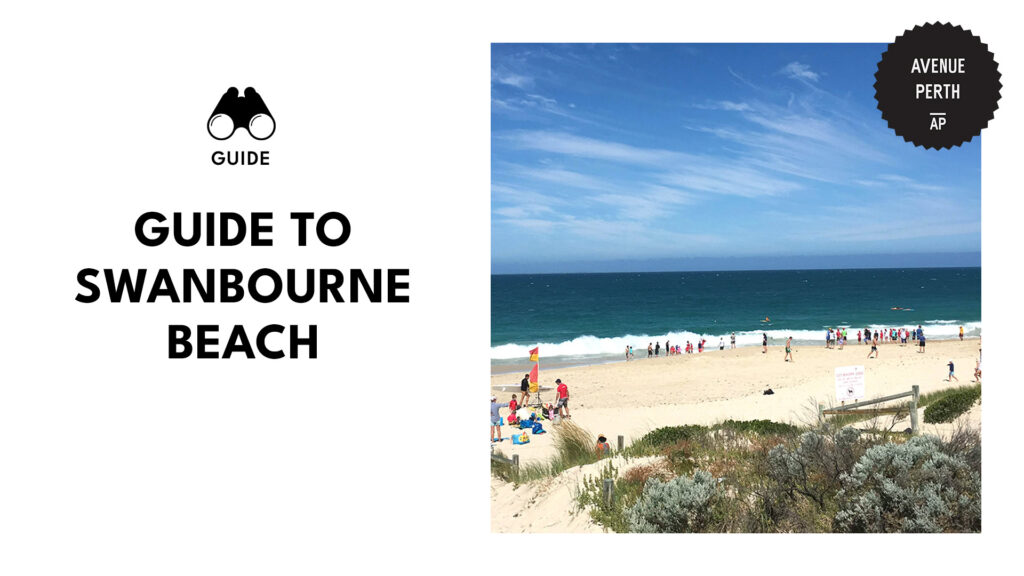Categories > Guides and Tips

Living in Perth: How much salary do you really need?
- What salary do you need to live in Perth?
- What are the factors that will affect the salary you’ll need to live comfortably in Perth?
- Mortgage and Rent
- Utility Bills
- Food Expenses
- Transportation Costs
- Healthcare
- Leisure Costs
- Childcare
- What is the average salary in Perth?
- What are the highest-paying jobs in Perth?
Perth has been hailed one of the best cities in the world to live in and the second most livable city in Australia. It’s not surprising that many are interested in moving to the city and starting anew.
But before you make that big decision, you have to first consider if your salary can provide you with a comfortable life in the city.
In this guide, we’ll give you a comprehensive breakdown of how much salary you’ll need to move and live in Perth. We’ll cover everything, from rent and food expenses to healthcare and leisure activities.
What salary do you need to live in Perth?

According to NASDAQ, a single person will need to have a monthly salary of at least $3,049 ($36,588 a year) to live comfortably in Perth. That said, the required salary will vary greatly depending on the person’s lifestyle and specific location.
With this salary, you can live in a one-bedroom apartment in the city centre, put food on the table, cover utility bills, and still have a little bit of disposable income left.
What are the factors that will affect the salary you’ll need to live comfortably in Perth?
Mortgage and Rent

Perth is one of the cities with the most expensive rent in Australia. The median unit rent for December 2023 in Perth is already at $550 per week, a lot higher than Adelaide and Hobart and slightly higher than Melbourne.
House renters, on average, paid $620 per week, which is still higher than Adelaide, Hobart, and Melbourne.
Rental prices also skyrocket yearly, so these numbers will soon change. According to the Australian Property Investor Magazine, rental values have grown 30.4% higher since COVID-19 and recorded a 13.2% increase over the past 12 months.
As the rent price continues to rise in Perth, expect an increase in the salary you’ll need to live comfortably in the city. If your salary remains the same, you’ll likely need to give up on some things and be a bit more frugal.
Utility Bills

To live comfortably, you’ll need access to electricity, water, and the Internet and a phone. All of these can take up a significant portion of your salary.
Electricity and water bills, on average, cost $216 per month for a two-bedroom apartment, so you can split it up if you have a roommate. If you’re living alone in a one-bedroom apartment, you can expect a drop in the cost, though not that much.
Internet bills typically cost $74 per month, while phone bills can range from $30 to $40, depending on your subscription plan and usage.
Food Expenses

When it comes to food expenses, Perth is generally not that expensive compared to other major cities. In fact, it’s among the most affordable if we’re only talking about groceries.
A single-person household will generally only spend $100 per week. But it can change greatly depending on where you shop and the type of food you buy.
Here’s an overview of the costs of common grocery items in Perth:
| Common grocery items | Average cost |
| 1 L of milk | $1.69 |
| 1 kg of white rice | $2.51 |
| 500 g of white bread | $2.61 |
| 1 kg of tomatoes | $4.82 |
| 1 kg of potatoes | $2.89 |
| 1 kg of bananas | $3.71 |
Transportation Costs

The easiest way to get around Perth is through a car. However, having a car can be pretty expensive, and you can expect that a considerable chunk of your salary will go toward gas or car payments.
On average, West Australians are shelling out $20,000 a year just for transportation. It’s not cheap. In fact, it’s the second most expensive in the entire country—with fees for insurance, registration, and licensing adding up to almost $35 per week (PerthNow).
If that proves to be too much for your current salary, Perth has a relatively good public transportation system that you can take advantage of. Although it’s not as convenient as having a car, it’s much cheaper.
Healthcare

Perth has a well-established and highly accessible healthcare system. It has a universal healthcare system in place where the government assists with a huge portion of your medical expenses, ensuring healthcare is within reach and affordable for all residents.
Hence, you won’t really need to worry much about spending a lot for your healthcare. You can receive emergency treatment, medications, follow-up care, and even most surgical procedures at no cost.
Healthcare will only affect your salary if you want a broader coverage on your healthcare plan or faster service, since you’ll need to get private insurance. This will increase your monthly expenses, which means you’ll need a higher salary.
Leisure Costs

Living comfortably, of course, doesn’t just mean having a roof above your head or food on the table. It also means having a bit of disposable income to enjoy some leisure activities, like eating out, going to pubs, watching movies, and travelling.
The overall leisurely costs you’ll need to prepare will depend on your lifestyle. The more frequently you go out, travel, and attend entertainment shows, the higher the salary you’ll need.
Here’s a quick overview of the average costs of various leisure activities in Perth:
| Leisure activity | Average cost |
| Dining at an inexpensive restaurant | $25 |
| Dining at a mid-range restaurant (for 2 people) | $120 |
| Buying a domestic 500 ml draught beer from a licensed venue | $11 |
| Buying 0.33 L bother of imported liquor from a liquor store | $12 |
| Buying cappuccino | $5.17 |
| Watching a live show of a local act | $45 to $60 |
| Watching a performance of a larger act or sporting event | $120 |
| Watching a theatre or dance concert | $170 |
| Going to the movies | $22 |
Childcare

There’s a significant difference between the salary you’ll need to live comfortably in Perth as a single individual and a parent to kids. Childcare is expensive and might result in an almost double monthly budget than what you’ll need as a single person.
According to Muval, sending a toddler to a childcare centre in Perth will typically cost you around $2,284.62 per month.
Once the kid grows up, you’ll need to start worrying about schooling. Although public schooling in Perth is free for primary and secondary levels, you’ll still pay certain expenses, like subject fees, device costs, excursions, supplies, and more.
If you want your child to go to a private school, the salary you’ll need will be much higher. The average cost for private schooling in Western Australia is $20,944.44 annually.
What is the average salary in Perth?

The average yearly salary in Perth in 2023 is around $79,000, according to PayScale, a compensation software and data company that rolls out salary surveys in various countries.
Your salary, of course, will still be highly dependent on your industry, experience, job description, and company’s discretion.
What are the highest-paying jobs in Perth?

The highest-paying jobs in Perth are pretty much similar to the highest-paying jobs in the nation—with medical practitioners bringing home the most salary out of all the professions.
If you’d like to move to a different profession or would like an increase in your salary, these are the highest-paying jobs you should show interest in:
| Highest-paying jobs | Average weekly salary |
| Surgeon | $5,272.10 |
| Anaesthetists | $5,225.40 |
| Other medical practitioners | $4,583.50 |
| Psychiatrists | $3,826.30 |
| Engineering managers | $3,476.70 |
| Internal medicine specialists | $3,327.70 |
| Air transport professionals | $3,323.10 |
| Chemical, petroleum, gas, and power generation plant operators | $3,238 |
| Research and development manager | $3,224.50 |
| ICT Manager | $3,287.60 |









